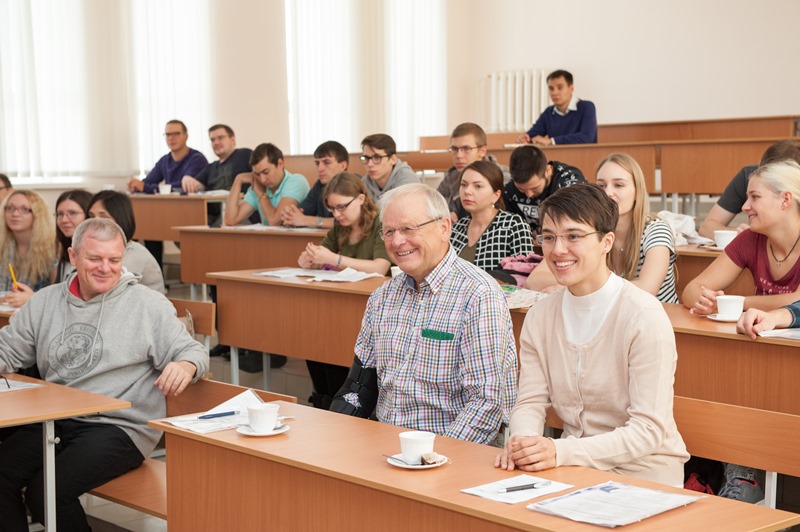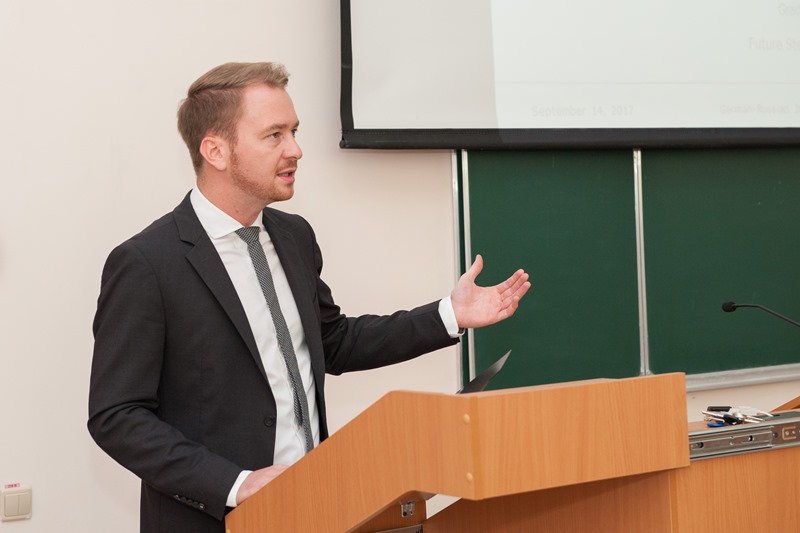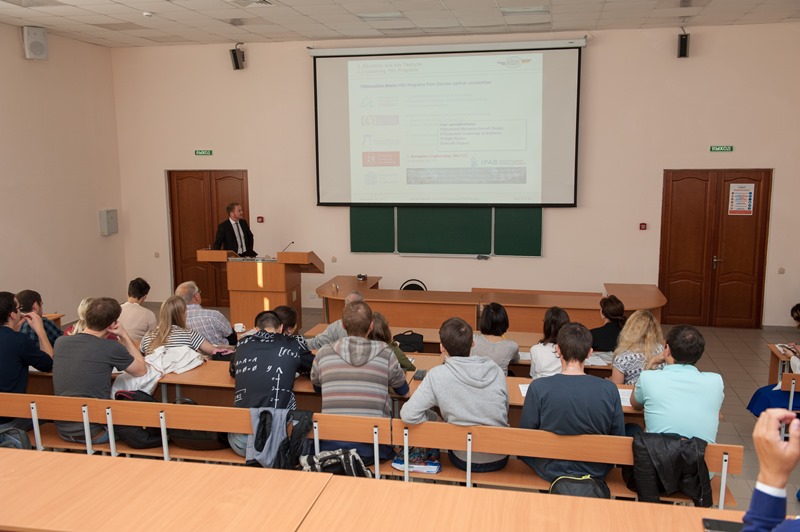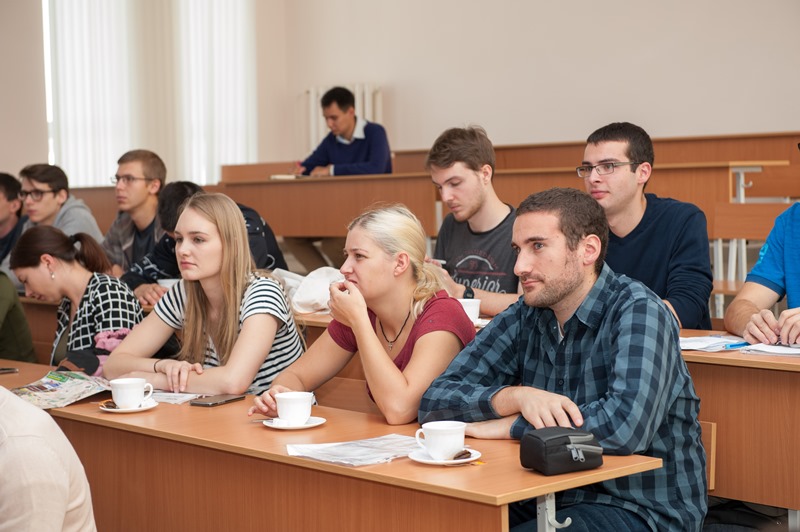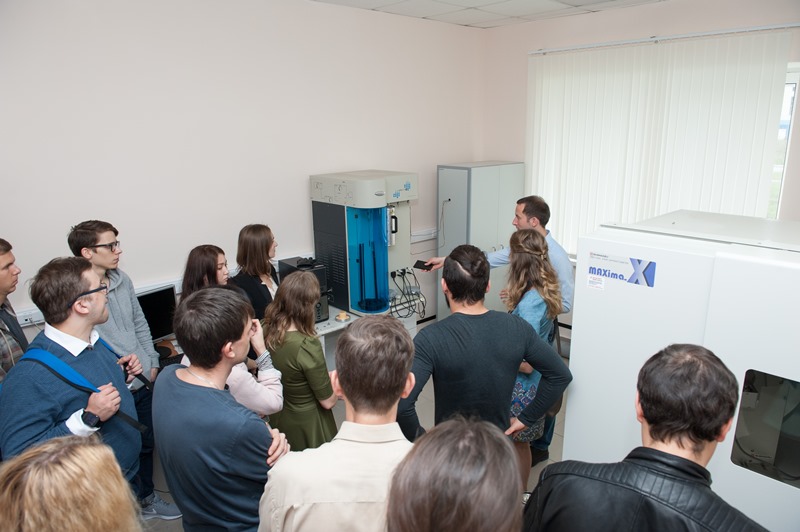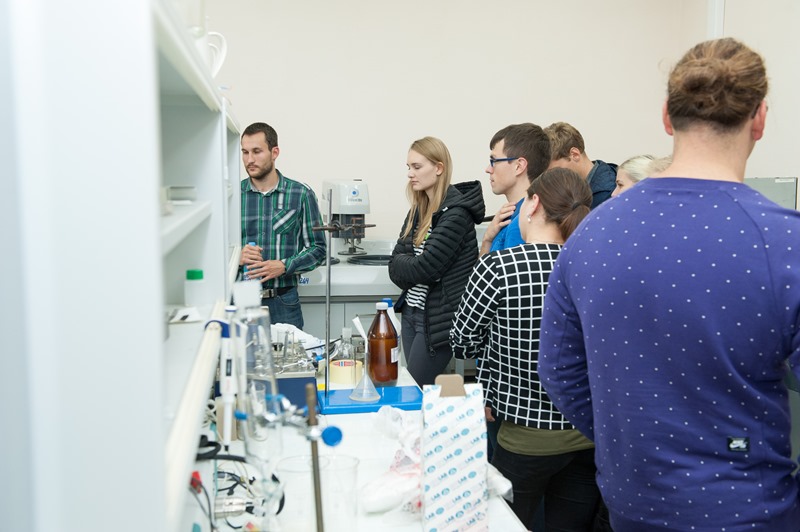On September 14th, 2017 participants of the seminar have visited the German-Russian Institute of Advanced Technologies.
German-Russian Travelling Seminar is a unique scientific event which runs every year, alternating in Germany and Russia. This year it runs from 10 to 22 September in four Russian cities: Yekaterinburg, Kazan, Dubna and Moscow. Its main organizers are Naturwissenschaftliche Fakultät Friedrich-Alexander-Universität Erlangen-Nürnberg, University of Bayreuth, German Federal Ministry for Education and Research, Ural Federal University (Yekaterinburg), and Ural Branch of Russian Academy of Sciences.
In Kazan participants of the seminar were invited to the German-Russian Institute of Advanced Technologies (GRIAT) where their stay was organized by GRIAT and the International Affairs Office of KNRTU-KAI.
In GRIAT the guests were welcomed by the German Director of the Institute Dr. Sven Rost. After short briefing conducted by Dr. Miriam Zobel (University of Bayreuth), Dr. Rost has given a welcoming speech. He thanked coordinators and organizers of the seminar. Then he has given a brief presentation of GRIAT highlighting its significance in establishing strong and fruitful relationships between Germany and Russia in the field of teaching and cooperation in science and high technology industries.
Scientific program of the event was divided in two parts. Between them there was a lunch as well as the guided tour to GRIAT labs.
List of presentations made in the framework of the seminar:
- Prof. Andrey Rempel – “Nanomaterials”
- Sebastian Krauβ – “Introduction to neutron scattering“
- Yulia Perevozchikova – “Electronic transport in half-metallic Co-based Heusler alloys for spintronics”
- Anton Weiβbach – “Field-induced assembly of cubic iron oxide nanoparticles”
- Ilya Balyakin – “Computer simulation of the behavior of nanoparticles in aqueous solutions”
- Felix Wenzel – “Self-Assembly of Colloidal Monolayers”
- Tobias Lauster – “Optical characterization of metallic nanoparticles on single particle level using darkfield spectroscopy”
After the end of scientific program participants were invited to play soccer.
Nowadays the German-Russian Institute of Advanced Technologies, which was established in 2014, is a unique dynamically developing institution. GRIAT graduates receive two diplomas – one from KNRTU-KAI (TU Kazan) and one from the partner university in Germany – either TU Ilmenau or Otto von Guericke University Magdeburg. This allows a unique feature of using high German standards of teaching on the Russian soil.
Today GRIAT has 14 German professors, 30 Russian professors, 70 coworkers and 137 students in 8 MSc programs.
TU Ilmenau provides 3 MSC programs: Communications and Signal Processing, Research in Computer and Systems Engineering, Automotive Engineering.
Otto von Guericke University Magdeburg provides such programs as Electrical Engineering and Information Technology, Chemical and Energy Engineering, Systems Engineering and Engineering Cybernetics.
TU Kaiserslautern provides Embedded Computing Systems program, and TU Braunschweig provides Aerospace Engineering program. In 2018 and 2019 it is planned to start additional MSc programs in cooperation with above-mentioned universities as well as with the TU Berlin, RWTH Aachen and TU Dresden. The final goal is to establish 30 to 35 MSc programs to 2025 and to bring the number of students to 1000.
